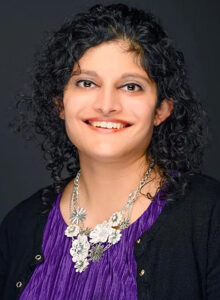Adulthood is the time when teachers and parents can no longer advocate for their children the same way they could during the school-age years. Much of it becomes the responsibility of the adult. At the beginning of my career, I had the opportunity to develop an evidence-based curriculum in partnership with an expert from Virginia Commonwealth University’s Autism Center of Excellence on self-advocacy for young adults with Autism and learning differences. I spent years teaching this course as well. Here are a few pieces of the curriculum that clinicians, educators, and family members of Autistic young adults can use with Autistic people in their lives. Of course, Autistic adults can utilize these strategies themselves as well.

Self-Awareness
Everyone must identify their strengths and areas where they may need support in their lives. Additionally, Autistic people have to reckon with a diagnosis that may change the way they view themselves. It often helps them to look into the stories of noteworthy Autistic people such as Anthony Hopkins, Lionel Messi, Jonny Depp, Bill Gates, Dr. Temple Grandin, Susan Boyle, and many more.
It’s Okay to Ask for Help
Once people identify areas where they might need more support, they can start to ask for help. When they start to see that their diagnosis can include several strengths, they can start to see asking for help as a necessary part of their growth. When they learn about the stories of other Autistic people who have lived fulfilling lives, they will start to learn how they sought support and asked for help as well. Asking for help is necessary for everyone, but our society often teaches us that it is a weakness when, in fact, it can be the most courageous thing one can do. When educators, clinicians, and guardians of Autistic Children start encouraging this at an early age, the children become more comfortable with it when they are adults. Offering encouragement and positive reinforcement when children ask for help can be life-changing for them. Of course, it’s never too late to start intentionally practicing asking for help.
Practice
It often helps to prepare ahead of time before self-advocating. It is helpful to develop a script. There is an evidence-based practice called social stories for this. Social Stories are tools with images and/or text that are used for effective communication between Autistic people and the rest of the world. Autistic people can create them with educators, clinicians, or loved ones. They can also find ones that work for them online. Autistic young adults can ideally practice this at an early age as children. For instance, they can order their own food at a restaurant if they are old enough. Looking at the menu ahead of time will help them prepare a script to help them order. They can use a communication device like an iPad if they prefer to do this without speaking. This is a simple way to empower them for self-advocacy at an early age. After speaking at a conference, the first person who approached me was a young man who was carrying an iPad in his hand. His mother and I both waited patiently for him to communicate what he wanted to say. He shared an incredibly kind message about my presentation with his iPad. He may not have done this had his mother or I rushed him and insisted that he speak audibly. The same thing can be done with a laptop or notebook.
Developing a Support System
Developing a support system can be critical for developing self-advocacy skills. Once young adults can identify people in their lives that they can reach out to for support with their goals, they can feel comfortable knowing that there are people out there who are willing to help them. This can include family members, educators, friends, healthcare providers, clinicians, and others in their lives. Having a few trusted people in one’s life can make a huge difference.
Priya Winston, PhD, LMSW, is Director of Curriculum and Clinical Supports at Transitions.






